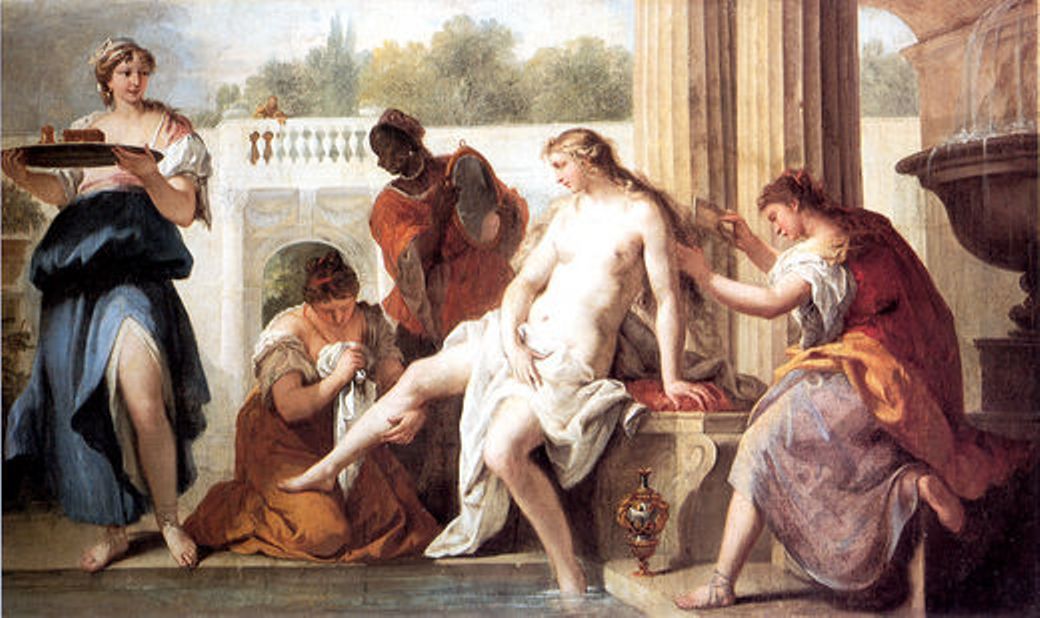Spiritual Sunday
Today’s Old Testament reading is one of the most disturbing in the Bible and therefore one of the most interesting. In an egregious abuse of power, King David impregnates the wife of Uriah the Hittite after seeing her bathing from the roof of his palace. When his initial cover-up attempts fail (he tries to get Uriah to sleep with her so that he will think the baby is his), he all but ensures Uriah’s death by ordering him into battle.
The subject of the voyeuristic David has long engaged painters, who are essentially voyeurs themselves. (See the Sebastiano Ricci painting above, with David gazing from the balcony.) Here’s the scene that draws them:
It happened, late one afternoon, when David rose from his couch and was walking about on the roof of the king’s house, that he saw from the roof a woman bathing; the woman was very beautiful. David sent someone to inquire about the woman. It was reported, “This is Bathsheba daughter of Eliam, the wife of Uriah the Hittite.” So David sent messengers to get her, and she came to him, and he lay with her. (Now she was purifying herself after her period.) Then she returned to her house. The woman conceived; and she sent and told David, “I am pregnant.”
Dramatist George Peele, an early contemporary of Shakespeare, writes an erotically charged song for the bathing Bathsheba (a.k.a. Bethsabe) in The Love of King David and Fair Bethsabe. Bathsheba appears to be taking a bath because she is so “hot” that she needs cooling down:
Hot sun, cool fire, tempered with sweet air,
Black shade, fair nurse, shadow my white hair:
Shine, sun; burn, fire; breathe, air, and ease me;
Black shade, fair nurse, shroud me and please me:
Shadow, my sweet nurse, keep me from burning,
Make not my glad cause cause of mourning.
Let not my beauty’s fire
Inflame unstaid desire,
Nor pierce any bright eye
That wandereth lightly.
The dark/light imagery, like the hot/cool imagery, captures David’s conflicting emotions, not to mention those of the Renaissance audience. On the one hand, Bathsheba is hot, burning, inflaming, and piercing. On the other, very chastely, she is cooling herself down, innocently hiding her white hair, asking the black shade to conceal her. It’s not her fault if someone happens to be watching her from an adjoining roof. But if someone is, she asks that she not “inflame unstaid desire.”
Ways of Seeing author John Berger discusses how, in classical painting, nudes must seem oblivious to the male gaze, even as they display themselves. The reason is our guilt about our sexual desires: men want their women innocent, even as their eyes lasciviously devour them. All those mixed feelings are at work in Peele’s poem.
“Hot Sun, Cool Fire” doesn’t solve the dilemma. But it certainly highlights it.


